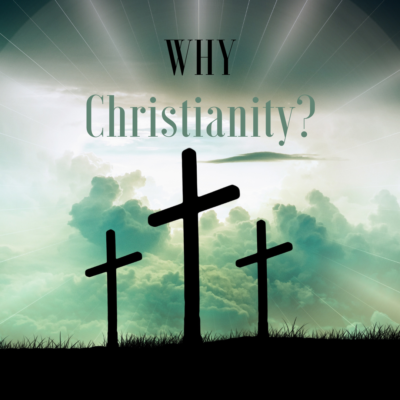The 23rd chapter has the best description of the Feasts that we have encountered. It lists the times and the procedures which should be implemented. There are three major feasts and four minor ones which accompany them. As we are looking at these, it’s important to constantly think, “Jesus.”
We’ve already seen that the Passover is a type for the crucifixion of Jesus, God’s Passover Lamb. The seven days of Unleavened Bread following that feast are the consecration of the believers to be holy to the Lord.
Then the Feast of First Fruits is offering the first and best to the Lord in order to bring blessing to the rest of the harvest. By faith, the Israelites are instructed to appropriate God’s best through this offering. The second major feast is the Feast of Weeks, or the Feast of Pentecost. At this time, fifty days after the harvest first produced some fruit, a larger offering is brought and waved before the Lord.
When Jesus was raised from the dead, He was the “first born among many brothers.” That was a fulfillment of the First Fruits. Then 50 days later, after walking the earth for 40 days and then ascending into Heaven and staying awhile, He sent His Holy Spirit to the earth to live in the hearts of men. That was the Feast of Weeks (or Pentecost). He was waving a larger offfering to the Lord, because many believers, now baptized in the Holy Spirit signified a greater harvest than just Jesus. Many God-men were entering the earth.
The third major feast, preceded by the Day of Atonement, or consecration, is the Feast of Tabermacles (or Booths). This is when the Jews would make for themselves little shelters covered with leaves. Each person would get into his private shelter and rejoice before the Lord for seven days, representing personal commitment and personal communication with the Lord. One-on-one time with their Creator.
In Zechariah 14:16-18, the prophet warns that every one will be required to celebrate the Feast of Tabernacles forever. Jesus fulfilled Passover and the Holy Spirit fulfilled Pentecost, but Tabernacles is to be celebrated forever. Why? It’s a type for God’s people spending time with Him, personally – thanking Him, loving Him, and letting Him speak to their hearts.
One day in our church, as we were praising and singing worship songs to God, the Lord spoke to me. He said, “Every time you get together and worship with your whole heart, you are celebrating the Feast of Booths.” We are gathered together in one place, but as we close our eyes and shut out the rest of the world, we erect a “booth” to focus totally on our God. He speaks to us as we sing or speak to Him. Sometimes He may correct us, sometimes encourage us, or sometimes just fill us with His love. We are celebrating the one-on-one relationship with Him.
Today is the on-going day of Tabernacles. Our lives will be enriched by God as we continue spending that time Him – praising, rejoicing, listening, and obeying.
Mark 1:1-22
Matthew, Mark, and Luke are called the “Synoptic Gospels.” They communicate as a history the life and works of Jesus on the earth. Each of these books has its own flavor, but many of the historical accounts and parables are the same. Today, as we start with Mark, you will notice that we have already heard of some of these things in Matthew.
Whereas Matthew spent a lot of time elaborating on each story, Mark was much more concise. He seemed to communicate each episode with almost as few words as possible. Matthew was writing to the Jews, primarily. He showed how the scriptures were being fulfilled and how the genealogy was aligned. Mark was writing to anyone who would listen – Jew or Greek.
Since the episodes in today’s reading are some we have already encountered, I won’t elaborate again. it will be good as you read to ponder once again each item. Let the lord speak to your heart concerning each item.
Blessings!





